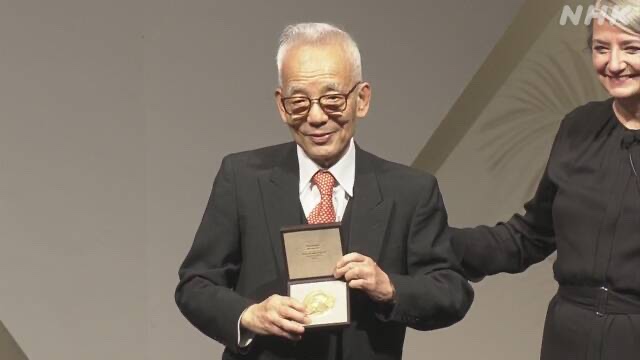
Nobel Prize: Small numbers tend to announce suddenly: Scientometrics
-University of Tsukuba’s research, researching half-century papers-
University of Tsukuba
Research group
January 21,
The Nobel Prize-class budding topic is
Regardless of past performance
It became clear that small groups tended to announce suddenly.
Nobel Prize-class topics:
In the research group
Especially in the fields of life sciences and medicine
We quantitatively analyzed “what drives the topic”.
Topic impacts society:
With the emergence of new research topics,
The research topic develops and causes a technological impact on society.
Survey papers from the last half century:
We have conducted a survey of all papers published in the past half century.
“Nobel Prize-class topics tend to be different compared to other topics.”
Tendency different from other topics:
About the driving force
A more detailed analysis was conducted focusing on the five years before and after the creation of the budding topic.
Nobel Prize-class topics:
as a result,
For Nobel Prize-class topics, a very small group,
It became clear that “there is a strong tendency to publish papers without prior publication.”
What you can see from this result:
To create Nobel Prize-class research results
It is suggested that “it is not effective to use past performance as an evaluation index”.
Trends since 2000:
“It is rare for another research group to enter a sprouted topic.”
in short,
“The tendency of the same researcher to continuously research topics that have sprouted once” became prominent.
Life sciences and medicine:
Huge amounts of money are required in the fields of life science and medicine.
The results of this survey are extremely important when considering the return on investment.
Results of this research:
It was published in the online version of “Scientometrics” magazine on the 20th.
Finance and Economics Newspaper
https://www.zaikei.co.jp/article/20220123/657068.html
Nobel Prize Winner: Only in specific scientific fields
-Focus on 5 of 114 scientific fields-
Stanford University:
Stanford University in the United States
He announced that the Nobel Prize-winning research was biased by field.
The research team analyzed 63 million papers published between 1995 and 2017.
Mapped by color coding in each field such as physics and biology.
as a result
Awarded out of 114 scientific fields
“Particle physics (14%)”
“Cell biology (12.1%)”
“Atomic physics (10.9%)”
“Neurology (10.1%)”
We are concentrating on “molecular chemistry (5.3%)”.
These accounted for more than half of the 52.4% of Nobel Prize winners.
In conclusion, the research that results in the Nobel Prize is concentrated in a small number of scientific disciplines.
Finance and Economics Newspaper
https://www.zaikei.co.jp/article/20200805/579416.html
How Nobel Prize research is created
~ Quantitatively elucidate the process of creating budding science and technology ~
https://www.tsukuba.ac.jp/journal/images/pdf/191018ohniwa-1.pdf
Generating process of emerging topics in the life sciences
Abstract
Clarifying the mechanism of how emerging topics in science and technology research fields
are generated is useful for both researchers and agencies to identify potential emerging topics of the future.
In the present study,
we use bibliometric analyses targeting data of about 30 million published articles from 1970 to 2017 on PubMed,the largest article database in the life science field, to test our hypothesis that existing emerging topics contribute to the generation of new emerging topics in that field.
We first collected emerging keywords from medical subject headings
attached to each article using our previously reported methodology (Ohniwa et al. in Scientometrics 85(1):111–127, 2010, https://doi.org/10.1007/s11192-010-0252-2),
and performed co-word analyses of each emerging keyword 1-year prior to it becoming an emerging keyword.
About 75% of total emerging keywords, at 1-year prior to becoming identified as emerging,
co-appeared with other emerging keywords in the same article.
Furthermore,
most of the keywords co-appeared again at the point when the target keyword was identified as emerging,which is consistent with our hypothesis regarding the mechanism that emerging topics generate emerging topics.